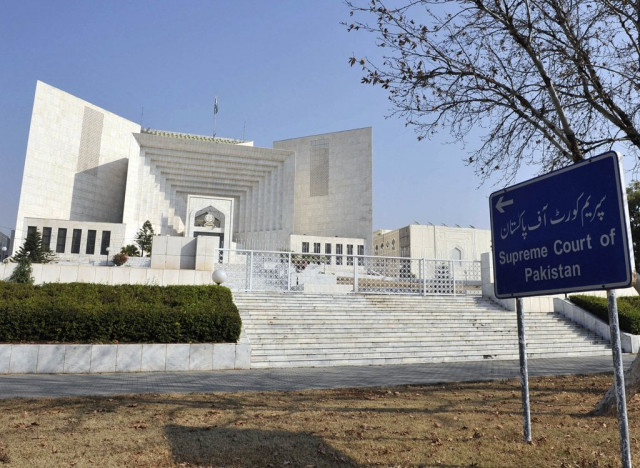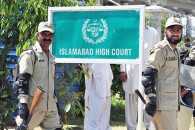SC holds NAB responsible for delay in deciding cases
CJP Gulzar asks chairman to change investigation team

The Supreme Court has held the National Accountability Bureau (NAB) responsible for delay in deciding corruption cases, observing that its investigation officers did not have the qualifications and capabilities.
A three-judge bench, headed by Chief Justice Gulzar Ahmed, heard the case regarding misappropriation in the construction of Lakhra Power Plant.
During the proceedings, the chief justice reviewed the performance of the anti-graft watchdog and asked its chairman to change the investigation team.
The other judge on the bench, Justice Yahya Afridi, remarked, “What is the reason behind arrests before the investigation is complete? If an accused did not reply during investigation, arrest is understandable, but making arrests without any reason burdens the courts.”
The court also observed that there was no system in NAB to check the quality of investigation. “Defective investigation report is converted into reference,” it noted.
The bench remarked that NAB tried to correct its mistakes after filing the reference and courts faced difficulty over deciding on erroneous references. “Delays in deciding corruption cases began with the NAB office,” it added.
During the hearing, it was revealed that NAB rules had not been made for 21 years. The court directed NAB to submit a report regarding formation of rules under Section 34 of NAB Ordinance within a month. “NAB SOPs cannot be a substitute for the rules,” it added.
NAB Prosecutor General Asghar Haider admitted before the bench that there were no rules.
The chief justice remarked that the NAB investigation officers lacked capacity as they did not know the legal aspects. “Investigation continued for years and people got stuck in NAB for years. Instead of deciding cases in 30 days, people faced prosecution for 30 years.”
CJ Gulzar remarked that the reference did not have quality as NAB made 50 witnesses in it. “One quality witness was enough.”
The NAB prosecutor general apprised the court that the NAB chairman and prosecutors were receiving threats. “Bullets were fired on one prosecutor in Rawalpindi. The Rawalpindi police was not registering the case of firing and the bureau needed someone's intervention to register a case,” Haider informed the bench.
He said that the government was reluctant to provide funds to NAB. “The salaries and benefits of NAB prosecutors are very low while the accused hired counsel with huge fees,” he added. “If funds are available, good prosecutors will be recruited.”
Justice Afridi remarked that provision of funds was an administrative matter and the court could not do anything in this regard. The NAB prosecutor said that everyone was against NAB, only the Supreme Court encouraged the bureau.
The chief justice remarked that NAB frames raw cases and forwards them to courts.
The prosecutor general replied that investigation officers were being trained by New York and British police. “Even in these circumstances, NAB is convicting 61% of the accused,” he added.
On setting up of 120 new accountability courts in the country, the chief justice said that Rs2.86 billion fund problem was like peanuts. “If NAB wins the cases, more than a thousand billion rupees can be recovered from the accused,” the CJ remarked. “Two billion rupees can be recovered from a single NAB case.”
The hearing was adjourned for one month.



















COMMENTS
Comments are moderated and generally will be posted if they are on-topic and not abusive.
For more information, please see our Comments FAQ